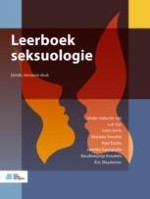Samenvatting
Mensen met een verstandelijke beperking hebben seksuele gevoelens, wensen en verlangens, maar voor hen is het op een positieve manier ervaren van seksualiteit niet altijd even gemakkelijk. Voor een goede ondersteuning van mensen met een verstandelijke beperking is het belangrijk inzicht te hebben in hun seksuele ontwikkeling en hoe deze anders verloopt dan bij mensen zonder een verstandelijke beperking. In dit hoofdstuk krijgt een aantal zaken specifieke aandacht: de verschillende syndromen, mensen met een (zeer) ernstige verstandelijke beperking, relatievorming, seksuele weerbaarheid, het signaleren van seksueel misbruik, fijne en veilige seks, seksuele problemen, de verschillen tussen mannen en vrouwen, seksuele diversiteit en de seksuele rechten van mensen met een verstandelijke beperking. Kortom: voor mensen met een verstandelijke beperking blijkt seksualiteit een ingewikkelde zaak. In dit hoofdstuk worden zowel die complexiteit als de positieve waarden van seksualiteit voor mensen met een verstandelijke beperking beschreven.
